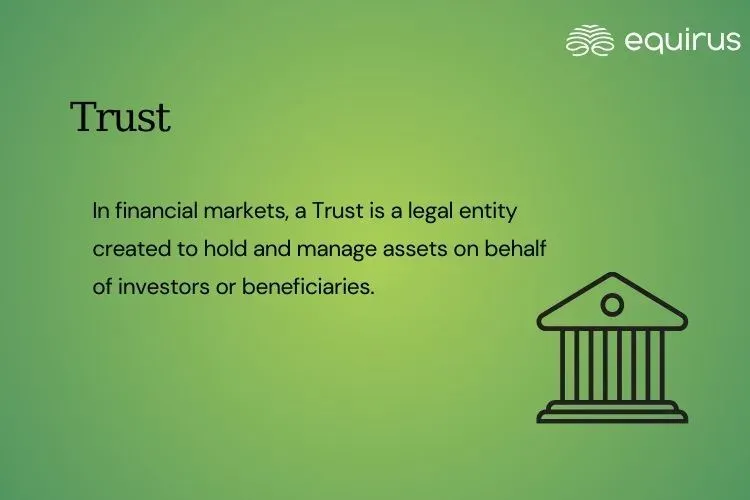Trust

Key Highlights
-
In financial markets, a Trust is a legal entity created to hold and manage assets on behalf of investors or beneficiaries.
-
Key participants of a trust includes settlor, trustee, beneficiaries and trust deed.
What is Trust?
In financial markets, a Trust is a legal entity created to hold and manage assets on behalf of investors or beneficiaries. Trusts are commonly used in structured finance, investment products, securitization, and capital market transactions to facilitate efficient asset management, protect investor interests, and ensure transparent governance.
Key Participants of a Trust
-
Settlor: The party (e.g., a corporation, financial institution, or investor) that transfers assets or funds into the trust.
-
Trustee: A regulated entity responsible for managing, administering, and safeguarding the assets according to the trust deed.
-
Beneficiaries: Investors or stakeholders entitled to the income or returns generated by the trust’s assets.
-
Trust Deed: A legal document specifying the objectives, rights, obligations, and governance framework of the trust.
Advantages in Financial Markets
-
Transparency and Governance: Trust structures provide clear rules and fiduciary oversight for asset management.
-
Risk Segregation: Assets held in trust are legally separated from the settlor’s balance sheet, protecting investors.
-
Regulatory Compliance: Trusts help align investment structures with statutory and market regulations.
-
Operational Efficiency: Streamlines fund administration, cash flow distribution, and reporting for institutional investors.
Why Trusts Matter for Institutional Investors?
Trusts are a cornerstone of structured finance, capital markets, and investment banking services. They provide institutional investors and corporates with a robust, transparent, and legally recognized framework for pooling assets, issuing securities, and executing complex financial transactions.
